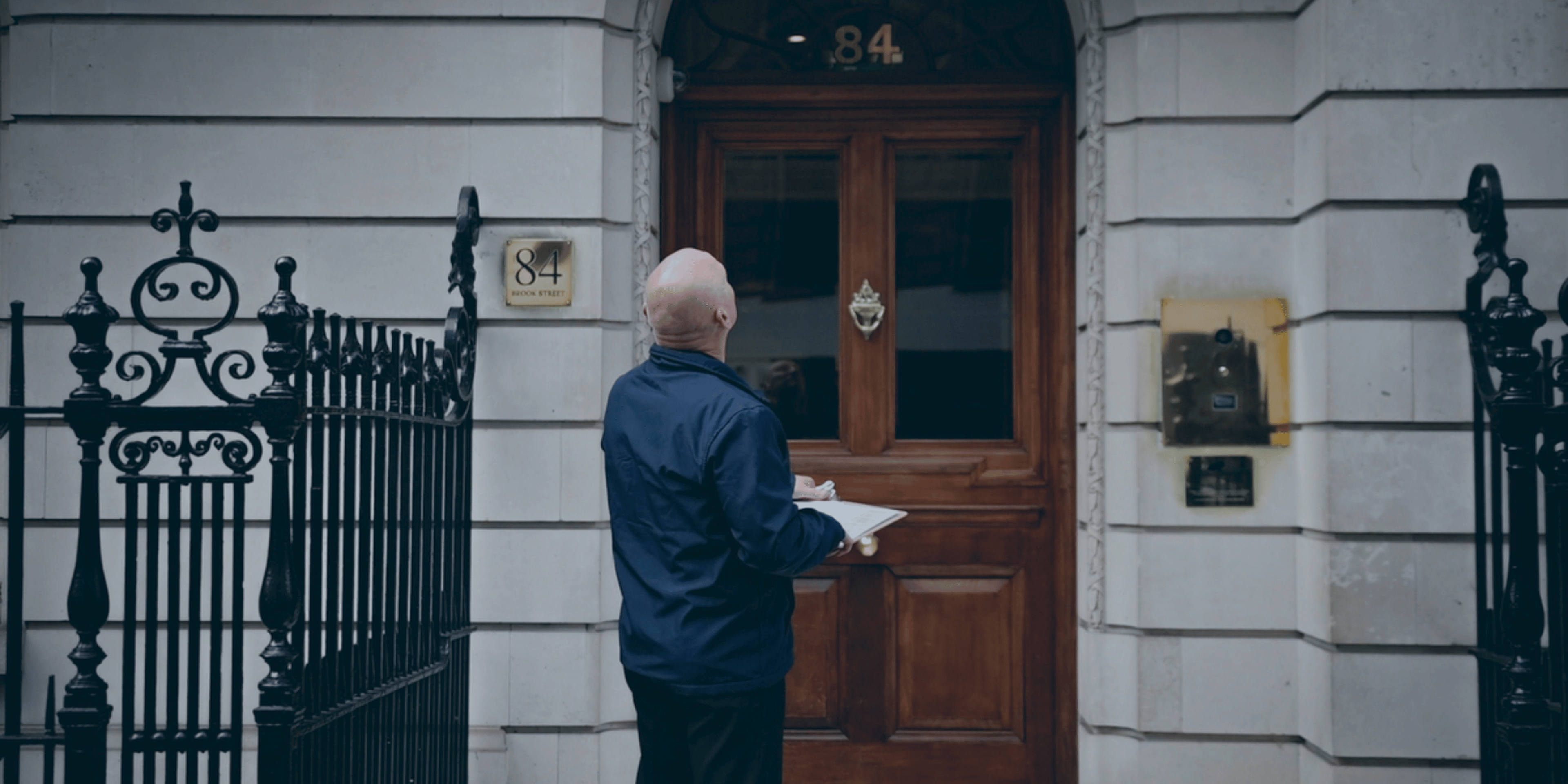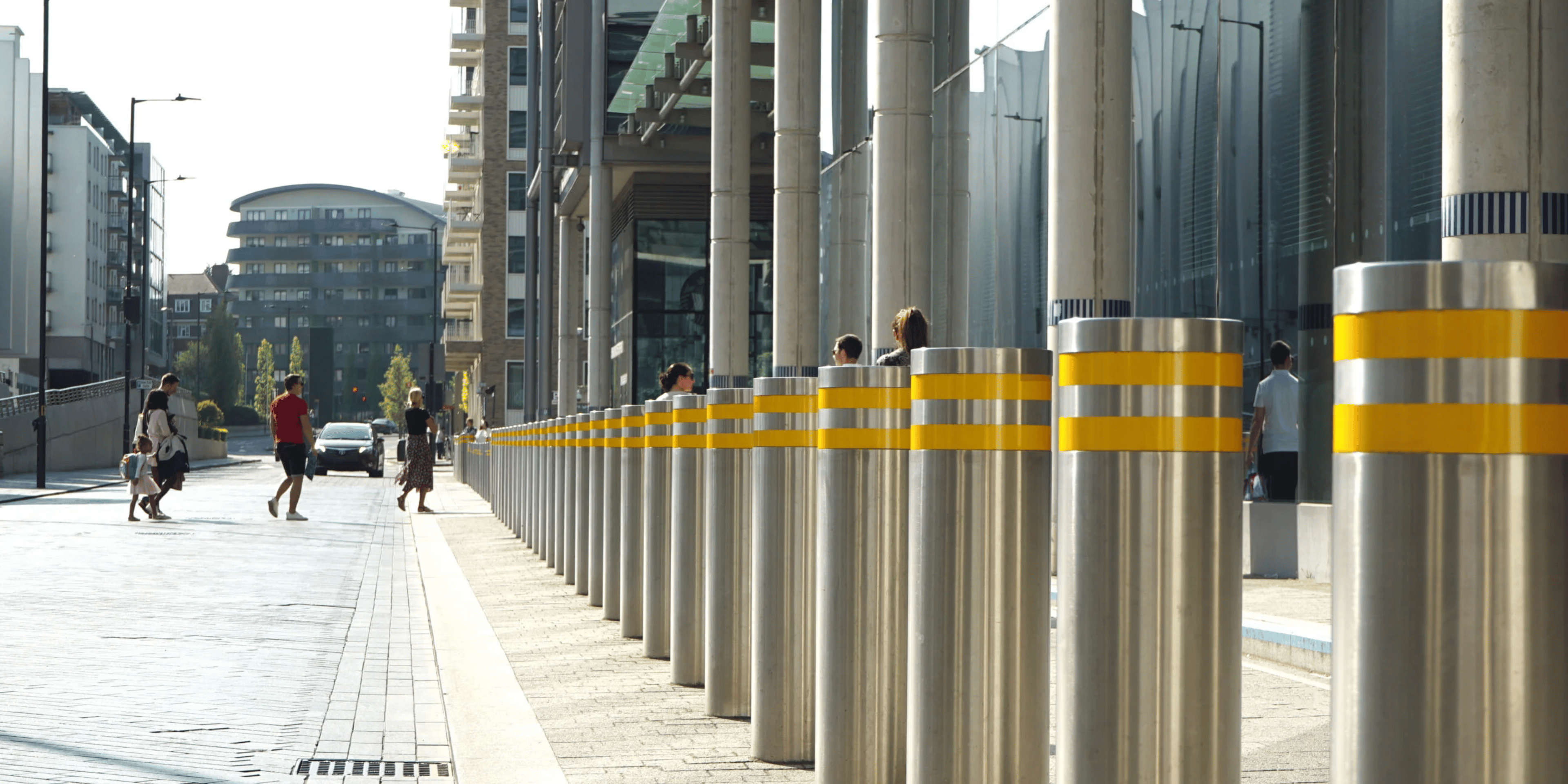
Understanding Commercial Security: Key Components and Benefits for Construction
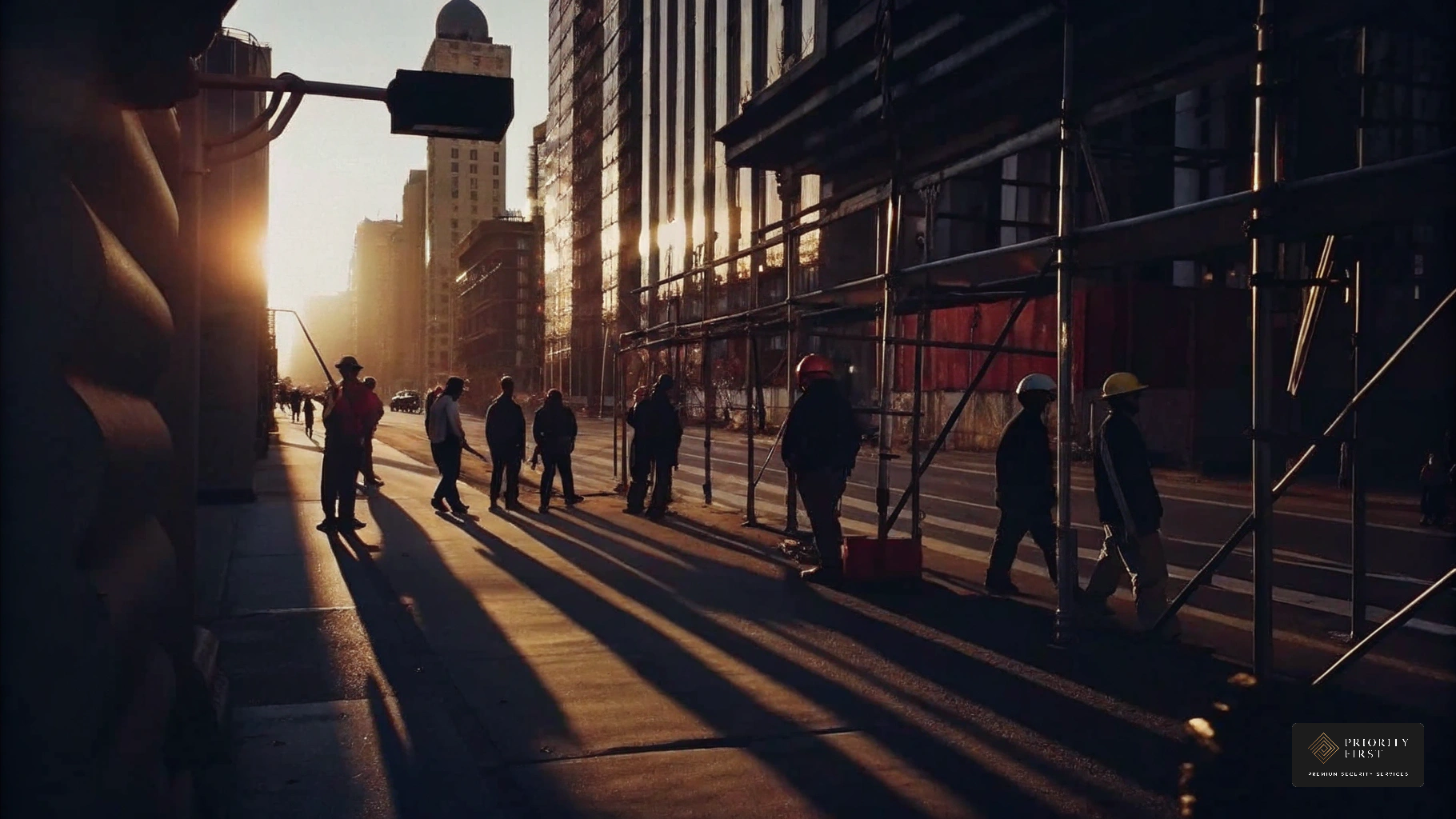
Overview
Commercial security in construction is essential for protecting assets and ensuring operational efficiency. Surveillance systems, access control, and monitoring services serve as critical measures against security challenges. The reality is that implementing these systems not only deters theft and vandalism but also fosters a safer working environment. This, in turn, leads to improved project outcomes and cost savings for businesses.
Ignoring these security risks can have significant consequences—financial losses, operational disruptions, and reputational damage. Construction theft alone costs UK businesses over £1m a week, highlighting the urgent need for robust security measures. That said, investing in security now can prevent greater losses later, making it a strategic priority for any construction project.
Priority First offers a pragmatic approach to these challenges, securing over £1.6bn in assets with rapid response times. Our focus is not on hype but on delivering measured solutions that ensure business continuity. Security is not an expense; it is a vital component of resilience in practise.
By situating security within the broader context of business operations, we empower our clients to make informed decisions. Early investment in security measures is crucial for safeguarding assets and enhancing overall project efficiency. The lesson is clear: prioritising security today lays the groundwork for sustained success tomorrow.
Introduction
Commercial security stands as a crucial pillar in safeguarding businesses, particularly within the construction industry, where valuable assets frequently remain exposed to threats. The reality is that security challenges are significant, and organisations must recognise the necessity of robust measures to enhance operational efficiency and protect their investments. Ignoring these risks can lead to severe financial, operational, and reputational consequences. Therefore, as threats evolve and security technology advances, construction managers must implement effective strategies to mitigate risks and cultivate a safe working environment.
In practise, the implications of inadequate security are profound. Construction theft, for instance, costs UK businesses over £1m a week, underscoring the financial burden of neglecting security. This situation necessitates a comprehensive understanding of security as a critical business function, rather than a mere afterthought. By contextualising security within the broader economic landscape, organisations can appreciate its role in fostering resilience and continuity.
Priority First emerges as a pragmatic solution to these challenges, offering measured reasoning rather than hype. With over £1.6bn in assets secured and rapid response times, Priority First positions itself not merely as a service provider but as a trusted advisor and partner. The lesson is clear: early investment in security not only prevents greater losses but also reinforces the foundation of business resilience.
Ultimately, organisations must prioritise security to safeguard their operations and investments. By taking proactive measures now, construction managers can ensure a safer working environment and protect their assets against evolving threats.
Define Commercial Security: Scope and Importance
Commercial security encompasses a variety of methods and tactics aimed at safeguarding enterprises from risks such as theft, vandalism, and unauthorised entry. This includes physical security measures like , access control systems, and alarm systems, as well as cybersecurity protocols to protect digital assets. In the building industry, where valuable equipment and materials are frequently left unattended, the necessity of robust commercial protection becomes evident. Effective protection not only secures physical assets but also fosters a safe working environment, enhances operational efficiency, and instils trust among clients and stakeholders.
The reality is that the implementation of extensive protective measures, such as integrated monitoring tools, can significantly reduce the risks of theft and vandalism, which are prevalent issues on construction sites. For instance, high-resolution surveillance cameras provide continuous monitoring and serve as essential evidence for insurance claims, thereby mitigating financial losses. Furthermore, access management systems ensure that only authorised personnel can enter sensitive areas, further bolstering site safety. Priority First’s CCTV monitoring service operates 24/7, guaranteeing that your premises are consistently monitored, facilitating real-time threat detection and prompt responses to suspicious activities.
Expert opinions underscore the importance of tailored protective measures that address the unique challenges of construction environments. Industry experts assert that investing in commercial security systems not only secures assets but also aids in maintaining project timelines and complying with safety regulations. The incorporation of advanced technologies, such as AI-driven monitoring and predictive risk modelling, enables proactive threat detection and swift responses, ensuring that construction sites remain secure and operationally efficient.
As we approach 2025, the significance of commercial safety in the building sector continues to grow, with a focus on both permanent and temporary solutions. Temporary measures, such as mobile CCTV towers and short-term patrol personnel, are vital for protecting sites during critical phases or transitional periods. By prioritising comprehensive protection strategies, construction managers can safeguard their investments and ensure seamless workflows, ultimately leading to improved project outcomes. Moreover, selecting a provider like Priority First, which emphasises integrating services with existing frameworks and holds accreditation from industry organisations like the SIA, is crucial for ensuring reliable and efficient protective services.
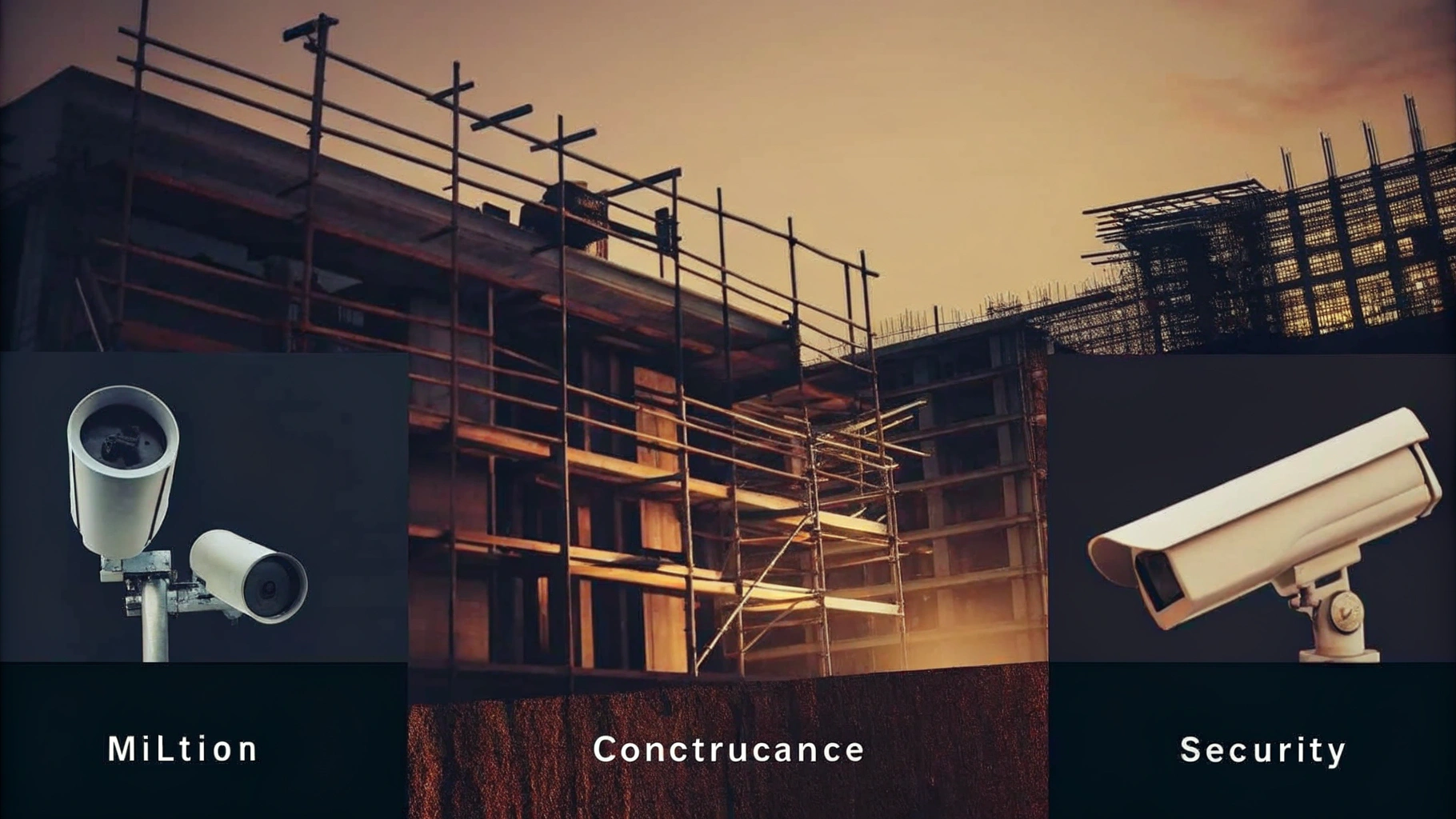
Trace the Evolution of Commercial Security Systems
The development of commercial security measures has advanced significantly from the basic lock-and-key devices of earlier eras. As threats have evolved, so too have the measures designed to counter them. The introduction of alarm devices in the 19th century marked a pivotal advancement, allowing businesses to effectively detect unauthorised access. The late 20th century ushered in the revolutionary use of CCTV technology, which enhanced surveillance capabilities and provided a visual deterrent against crime. By 2025, commercial security systems have further evolved, integrating cutting-edge technologies such as artificial intelligence, machine learning, and cloud-based solutions. These innovations facilitate real-time monitoring, predictive analytics, and automated threat detection, empowering businesses to proactively address both physical and digital safety challenges. This ongoing evolution underscores the necessity for that adapt to the increasingly complex threat landscape faced by modern businesses.
Identify Key Components of Commercial Security Systems
Key components of commercial security are critical for safeguarding assets and ensuring business continuity.
- (CCTV) serve as a fundamental element, essential for monitoring premises and deterring criminal activity. Priority First provides comprehensive [CCTV monitoring services](https://priorityfirst.co.uk/insights/10-benefits-of-monitored-cctv-for-construction-site-security) that deliver around-the-clock surveillance, facilitating real-time detection of suspicious activities. Contemporary setups often feature high-definition video, night vision, and remote access capabilities, significantly enhancing overall safety.
- Access Control Mechanisms are equally vital, regulating entry to specific areas through methods such as key cards, biometric scanners, or PIN codes. Priority First integrates access control with existing frameworks to ensure seamless operation and heightened protection.
- Intrusion Detection Systems include alarms and sensors designed to alert personnel of unauthorized access attempts, further reinforcing security measures.
- Additionally, Fire and Safety Systems consist of integrated systems that detect smoke, fire, or gas leaks, thereby safeguarding personnel and assets.
- Monitoring Services provide 24/7 oversight by professionals capable of responding to alerts and incidents in real-time. Priority First’s monitoring services guarantee that your property remains under vigilant surveillance, even outside of regular business hours and on weekends.
Each element plays a crucial role in developing a comprehensive protection strategy that not only incorporates commercial security to safeguard assets but also enhances overall business resilience.
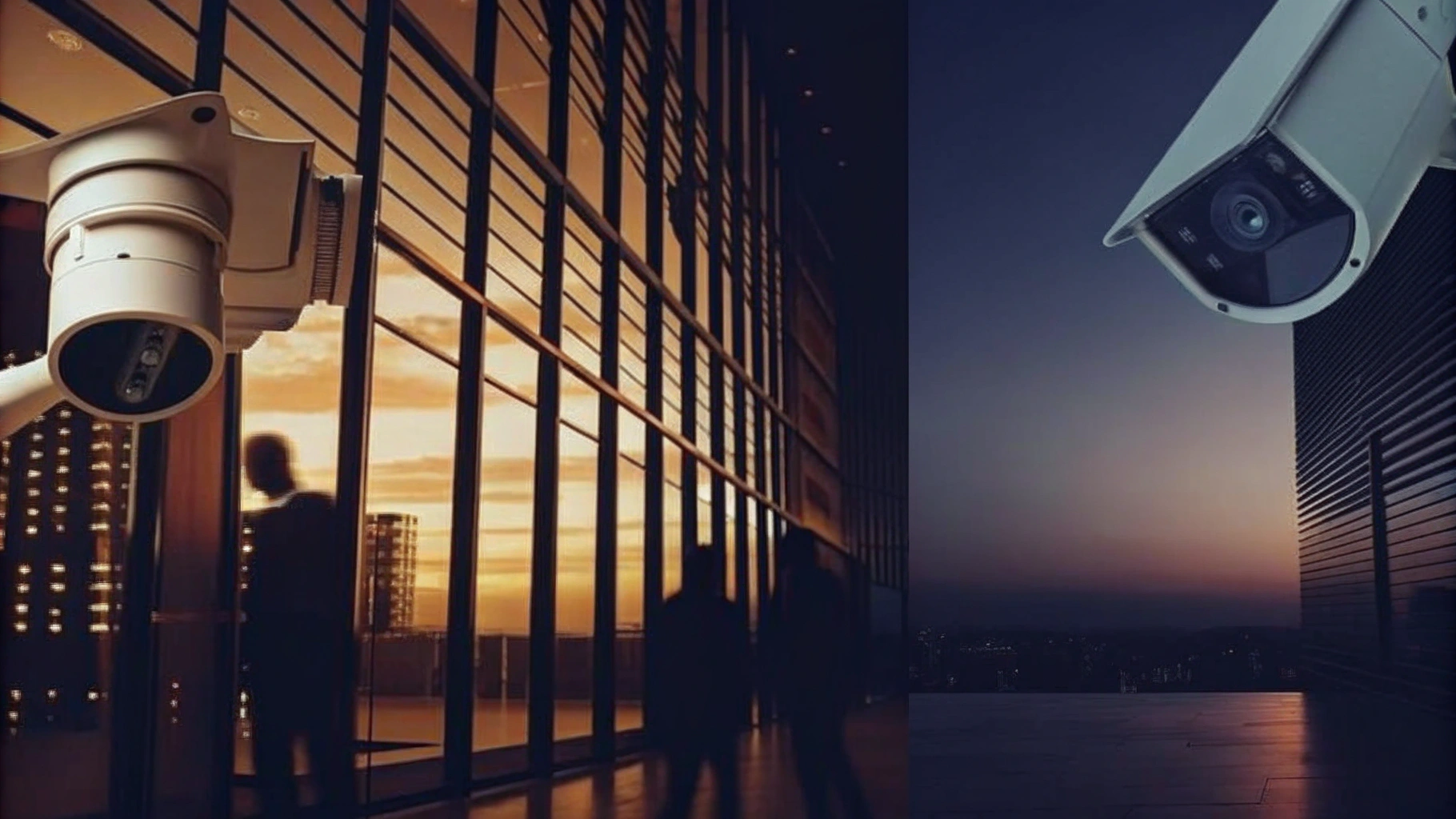
Explore the Benefits of Implementing Commercial Security
Implementing commercial security systems provides significant benefits that enhance safety and improve operational efficiency.
The reality is that a visible security presence, supported by advanced surveillance technologies like CCTV monitoring, acts as a powerful deterrent against theft and vandalism. This proactive approach not only safeguards valuable assets but also reduces losses. Research indicates that companies with robust protective measures experience a notable decrease in theft occurrences. For example, a recent study revealed that businesses with comprehensive security protocols saw a 30% reduction in theft-related losses. Priority First's experience managing construction sites shows that locations equipped with CCTV and access control measures report fewer incidents of theft and vandalism.
In practise, security measures are crucial for fostering a safer working environment. By consistently monitoring for potential hazards and ensuring compliance with health and safety regulations, these systems help mitigate risks that could lead to accidents or injuries. Priority First's tailored protection solutions, which include logistics oversight and facilities management, ensure that construction sites remain organised and safe. Regular maintenance of these systems is vital to maintain their functionality and effectiveness in real-time monitoring.
The implications of streamlined safety processes are clear: businesses can allocate fewer resources to incident management. This efficiency allows project managers to focus on core operations, ultimately enhancing productivity and project timelines. According to Shea Nugent, UK Sales Director, "A well-crafted protection system not only safeguards physical assets but also creates a safe atmosphere for employees and customers." Furthermore, Priority First's integrated site logistics services boost operational efficiency by managing the complexities inherent in construction environments.
Moreover, numerous insurance companies recognise the reduced risk associated with businesses that implement strong protective measures. Consequently, companies often enjoy lower insurance premiums, resulting in substantial cost savings over time. Firms investing in security systems may see their premiums decrease by as much as 20%, making this a financially prudent choice.
Finally, the peace of mind that comes from knowing both assets and personnel are protected allows business owners and employees to concentrate on their tasks without the persistent worry of potential threats. This is invaluable, fostering a more focused and productive workforce. Priority First's alarm response services, coupled with key holding, ensure that any incidents are addressed swiftly and efficiently, further enhancing this sense of safety.
Overall, the strategic investment in commercial security, particularly in systems provided by Priority First, delivers substantial returns in terms of safety, efficiency, and peace of mind. This makes it an essential consideration for construction site managers.
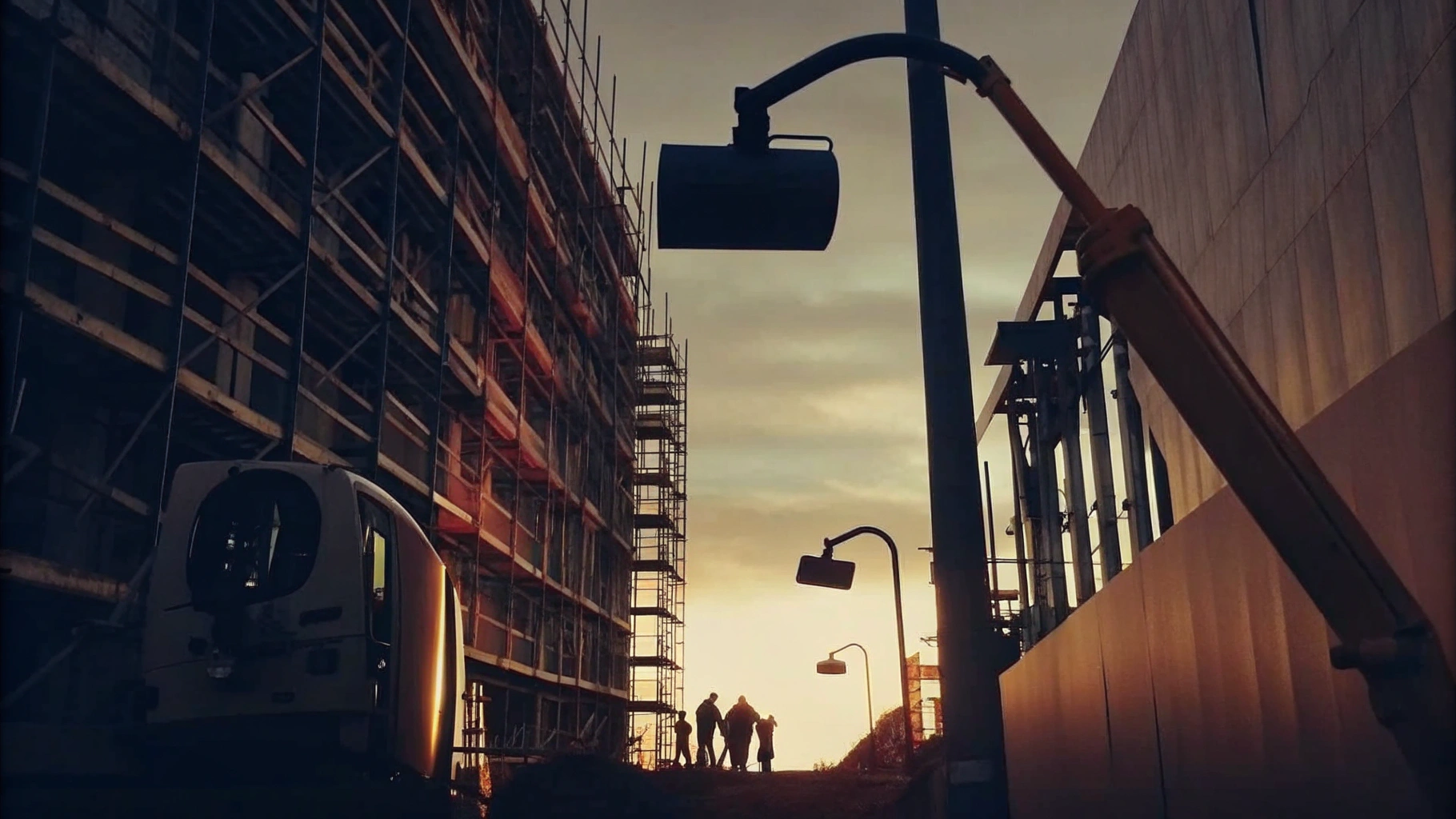
Conclusion
Commercial security is a critical component in safeguarding construction sites and businesses against various threats, ensuring the protection of valuable assets while fostering a secure working environment. The reality is that comprehensive security measures are increasingly vital, especially as construction sites face significant risks such as theft, vandalism, and unauthorised access. By investing in tailored security solutions, companies can protect their physical assets and enhance operational efficiency, thereby building trust among clients and stakeholders.
Key insights reveal the evolution of commercial security systems, particularly the integration of advanced technologies like AI and machine learning, which facilitate proactive threat detection and real-time monitoring. That said, essential components such as surveillance cameras, access control mechanisms, and intrusion detection systems contribute significantly to a robust security framework. The implications of implementing these systems extend beyond mere asset protection; they also improve safety compliance, reduce insurance costs, and enhance productivity on construction sites.
Ultimately, prioritising commercial security transcends asset protection; it is about cultivating a safe and efficient environment that enables businesses to thrive. In practise, as the construction industry evolves, embracing innovative security solutions becomes crucial in mitigating risks and ensuring successful project outcomes. Investing in comprehensive security measures today paves the way for a safer and more productive tomorrow, making it essential for construction managers and business owners to take action and implement effective commercial security strategies.
Frequently Asked Questions
What is commercial security?
Commercial security refers to a range of methods and tactics designed to protect enterprises from risks such as theft, vandalism, and unauthorised entry. It includes physical security measures like surveillance cameras, access control systems, alarm systems, and cybersecurity protocols for digital asset protection.
Why is commercial security important in the building industry?
Commercial security is crucial in the building industry because valuable equipment and materials are often left unattended. Effective protection secures physical assets, fosters a safe working environment, enhances operational efficiency, and builds trust among clients and stakeholders.
How can integrated monitoring tools help reduce risks on construction sites?
Integrated monitoring tools, such as high-resolution surveillance cameras, provide continuous monitoring and serve as essential evidence for insurance claims, significantly reducing the risks of theft and vandalism on construction sites.
What role do access management systems play in commercial security?
Access management systems ensure that only authorised personnel can enter sensitive areas, thereby enhancing site safety and preventing unauthorised access.
What is the significance of 24/7 CCTV monitoring services?
24/7 CCTV monitoring services, like those offered by Priority First, ensure consistent surveillance of premises, facilitating real-time threat detection and prompt responses to suspicious activities.
How do tailored protective measures benefit construction environments?
Tailored protective measures address the unique challenges of construction environments, helping to secure assets, maintain project timelines, and comply with safety regulations.
What advanced technologies are being incorporated into commercial security?
Advanced technologies such as AI-driven monitoring and predictive risk modelling are being used to enable proactive threat detection and swift responses, ensuring construction sites remain secure and operationally efficient.
What are temporary security measures, and why are they important?
Temporary security measures, such as mobile CCTV towers and short-term patrol personnel, are vital for protecting sites during critical phases or transitional periods, ensuring comprehensive protection strategies are in place.
Why is it important to choose a reputable security provider?
Selecting a reputable provider, like Priority First, is crucial for ensuring reliable and efficient protective services, especially if they emphasise integrating services with existing frameworks and hold accreditation from industry organisations like the SIA.


